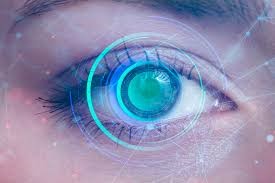- December 3, 2022
- GBH Staff Members
- Comment: 0
- Health Tips
Eyes are certainly an important component of our lives, as they are the primary sensor for everything that happens around us. They are sensitive organs, and there are many factors affecting them, which are vulnerable to damage due to ageing, lifestyle disorders, harsh exposure, or accidental injury. The blue light emanating from computer and smartphone screens continuously can cause eye strain, blurred vision, and headache. So, it is easy to take extra care of this vital organ – do’s and don’ts for those delicate eyes.
Why is it important to take care of eyes?
- Eyes are the windows of the body. One should have adequate eye care which helps the eyes to deal with common eye disorders like glaucoma and cataracts.
- Eye care not only improves and maintains our vision, but it can also detect underlying medical issues such as high blood pressure and diabetes.
- Eye problems have a great impact on one’s quality of life. If a person becomes blind due to eye injury or eye disease, there will be a great loss to the family, society, and country.
Do’s for eyes
- Good diet for your eyes: – Right diet and healthy habits are two important factors which can solve practically all the problems of our body. A healthy diet and proper eye care are enough to keep the eye doctor away.
Omega-3 fatty acids (especially DHA), lutein, zeaxanthin, beta-carotenoids, curcumin, lycopene, and vitamins are essential for good vision. This acid helps in the development of vision as well as in relieving dry eyes and chronic inflammation of the eyelids. Seasonal vegetables, especially dark green leafy vegetables such as spinach and broccoli, as well as fruits such as watermelon, contain lutein, an antioxidant that protects and improves eye health, and thus should be consumed in large quantities.
- Rest your eyes: – For most of the 24-hour cycle, we rely on our eyes. They too need a break. Our eye muscles get tired after continuous use, so proper eye rest and good sleep are important for healthy eyes.
Constantly looking at laptop and mobile screens are of no use as it takes away your ability to blink your eyelids – a split second but much-needed rest for your eyes. Give your eyes a break from your laptop and smartphone.
- Take care of your eyes: – Protect your eyes from dust, high heat, glare, and sunlight. Everything we put in our eyes including eye drops, lotions and cosmetics, and bacteria found in mascara or other eye cosmetics can cause eye infections. So, check the condition of these cosmetic items and their product expiry date.
- Wash your hands for the sake of your eyes: – Many common eye diseases are contagious in nature and can easily spread from person to person. These include the common cold, pink eye, and skin infections, as well as allowing something unwanted into your eyes from your hands. That is why we should adopt the habit of washing our hands
before and after wearing contact lenses, as needed. It can help you avoid common diseases. - Eye exercises: – Do a variety of basic exercises to relax your eyes. Place your palms over your eyes and rub them together. Hold them in place for 5 seconds. This should be done at least 5-10 times. With such simple exercises, our eyes get the much-needed rest and get relief from the strain on the muscles of the eyes.
Don’ts for eyes
- Avoid screen viewing and glare:- Do not look at your laptop or smartphone screen for a long time. Turning off the screen is still the best solution. Or try the ‘Night Mode’ and ‘Anti-Glare’ functions, which claim to reduce eye strain. And take a few minutes to walk.
You are exposing your retina to glare, or direct exposure, to sunlight, laser pointers or screens for too long. The retina of your eye is a sensitive part of the eye. Wear sunglasses with anti-glare lenses to protect your eyes.
- Do not smoke: – Smoking can also affect your vision. Smoking increases the production of free radicals, which put the body’s natural antioxidants to the test. An increased number of free radicals causes oxidative stress in the eye and causes the degradation of lens proteins.
- Don’t miss eye exams:- Don’t delay in getting your eyes checked regularly. Frequent eye exams can help detect blurred vision, cataracts, retinal damage, or early signs of eye disorders such as glaucoma, the diabetic eye, and macular degeneration.
- Use eye makeup properly: – Choose makeup brands that work well for you. Avoid eyeshadow, mascara and eyeliner which can cause an allergic reaction in your eyes. To avoid a build-up of bacteria from leftover makeup in the under-eye area, use a makeup remover before going to bed.
- Don’t be inactive all day long.: – Being physically active also contributes to our overall health. Physical activity, along with a healthy diet, also reduces the risk of other eye diseases that are linked to the risk of vision loss.
Conclusion
Eye is an important but sensitive part of our body. It is a resource that allows us not only to witness the wonders of the world but also to carry out our daily duties smoothly and efficiently. Appreciating the world only requires a little extra care, eating properly, getting enough rest, and avoiding items that can harm your eyes. Not through the lens or in black and white, but in over 65 million colours that your eyes can see.


